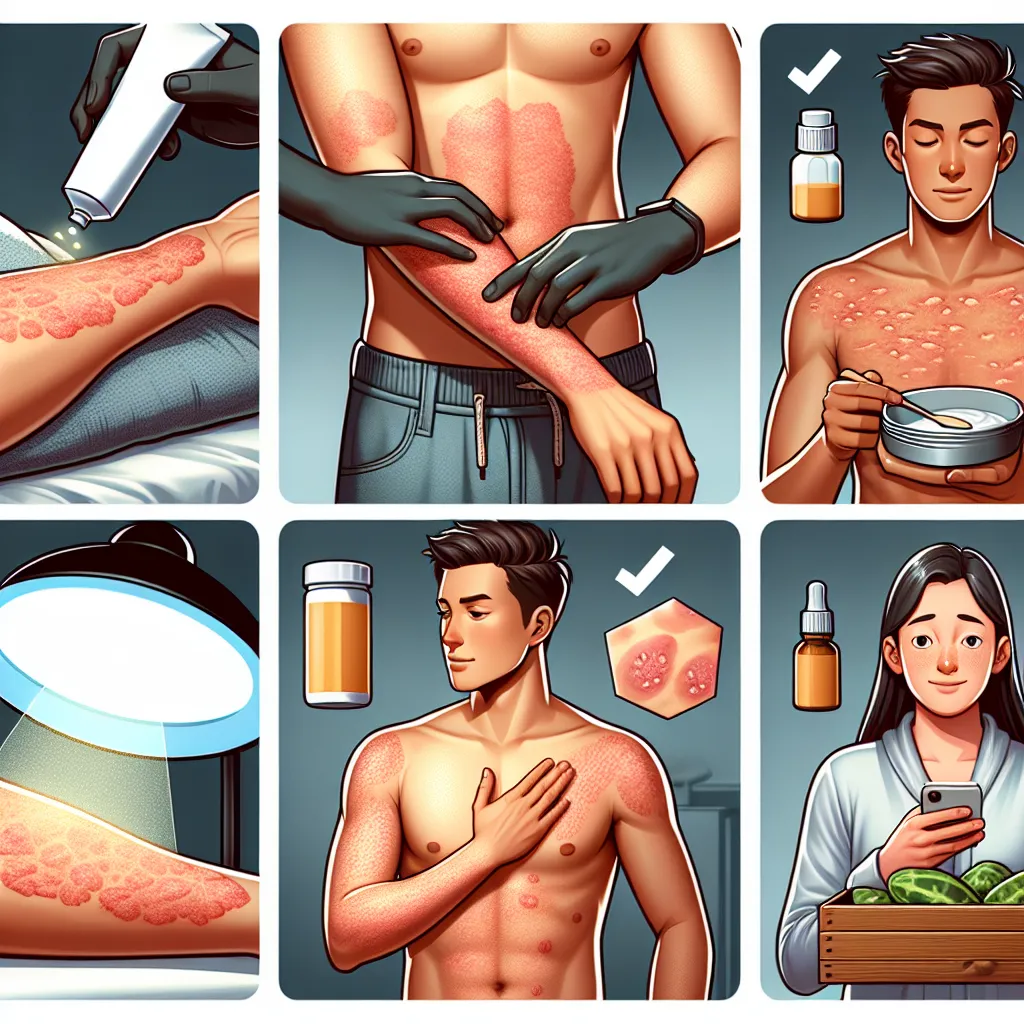How to Get Rid of Psoriasis Overnight
How to Get Rid of Psoriasis Overnight
Psoriasis is a chronic autoimmune skin condition that affects millions of people worldwide. It is characterized by red, itchy, and scaly patches on the skin. While there is no permanent cure for psoriasis, there are several methods you can try to alleviate the symptoms and reduce flare-ups. In this article, we will explore various strategies and natural remedies that may help you get rid of psoriasis overnight.
1. Moisturize Your Skin
Keeping your skin well-moisturized is crucial for managing psoriasis symptoms. Dry skin can worsen the condition and lead to increased itching and flaking. Apply a thick, fragrance-free moisturizer immediately after showering or bathing to lock in the moisture.
Look for moisturizers that contain ingredients like ceramides, hyaluronic acid, or shea butter, as these can effectively soothe and hydrate the skin. Consider using natural moisturizers like coconut oil or aloe vera gel, which have anti-inflammatory properties and can help reduce redness and itching.
2. Take Warm Baths
Taking regular warm baths can help soften the psoriasis scales and relieve itching. Add a handful of Epsom salts, colloidal oatmeal, or Dead Sea salts to your bathwater for added benefits. These ingredients can help reduce inflammation and soothe the skin.
Avoid using hot water as it can dry out your skin further. Limit your bath or shower time to 15 minutes and pat your skin dry gently with a towel afterward. Immediately apply a moisturizer to seal in the moisture.
3. Use Topical Treatments
Topical treatments are often the first line of defense against psoriasis. Over-the-counter creams and ointments containing ingredients like salicylic acid, coal tar, or corticosteroids can help reduce inflammation, remove scales, and alleviate itching.
Apply the topical treatment directly to the affected areas as per the instructions provided. It’s important to note that some topical treatments may have side effects or interact with other medications, so consult with your doctor or dermatologist before using them.
4. Try Phototherapy
Phototherapy, also known as light therapy, involves exposing the skin to ultraviolet (UV) light to reduce inflammation and slow down the rapid growth of skin cells. This treatment is usually performed under medical supervision and can be done in a dermatologist’s office or at home using a specialized UVB lamp.
However, it’s crucial to follow the recommended guidelines and avoid overexposure to UV light, as it can increase the risk of skin damage and even skin cancer.
5. Manage Stress
Stress is known to trigger or worsen psoriasis symptoms. Therefore, finding effective stress management techniques can significantly help in reducing flare-ups. Engage in activities that help you relax and unwind, such as practicing yoga, meditation, or deep breathing exercises.
Additionally, consider incorporating regular exercise into your routine as it can help reduce stress and improve overall health. Exercising releases endorphins, which are natural mood boosters, and can contribute to a healthier immune system.
6. Follow a Healthy Diet
While there is no specific diet that has been proven to cure psoriasis, certain dietary changes may help manage the condition. Some individuals have reported improvements in their symptoms by following an anti-inflammatory diet.

An anti-inflammatory diet typically includes foods rich in omega-3 fatty acids (found in fatty fish like salmon and mackerel), colorful fruits and vegetables, whole grains, and lean proteins. Avoiding processed foods, alcohol, and foods high in sugar can also be beneficial.
7. Explore Natural Remedies
Various natural remedies may provide relief from psoriasis symptoms. Some individuals have found success in using aloe vera gel, apple cider vinegar, tea tree oil, or turmeric topically on the affected areas. These natural ingredients have anti-inflammatory properties and can help soothe the skin.
It’s important to remember that natural remedies may not work for everyone, and their effectiveness may vary. It’s always advisable to consult with a healthcare professional before trying any new remedies, especially if you have any underlying health conditions or are taking medications.
Conclusion
While getting rid of psoriasis overnight may not be entirely possible, adopting a combination of these strategies can help manage the symptoms and reduce the frequency and severity of flare-ups. Remember to consult with your doctor or dermatologist for personalized advice and treatment options tailored to your specific condition.
